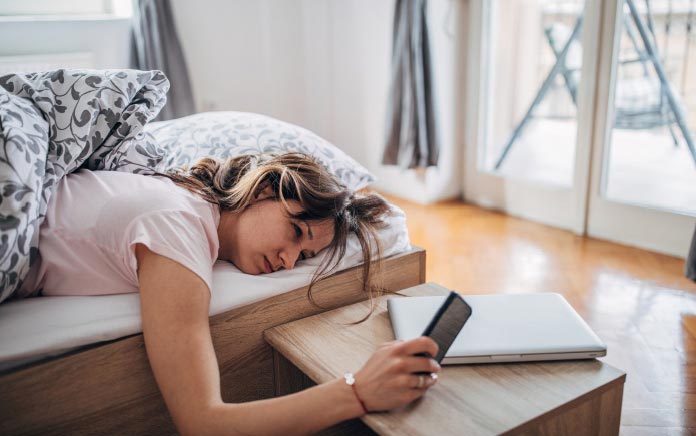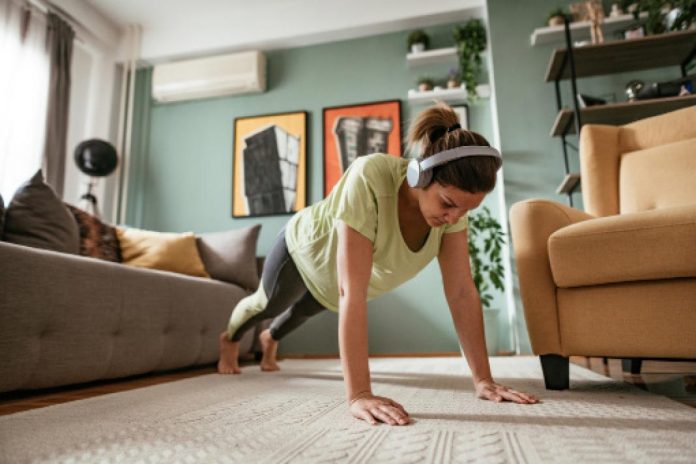GET MOVING
A new study from the University of Texas (UT) at Austin suggests that even small bouts of intense exercise can help offset some of the harmful effects of extended periods of sitting.
Additionally, these micro workouts also appear to offer different benefits than some longer workouts when done throughout the day.
It was found that four-second sprints conducted five times per hour helped to improve fat metabolism and lower triglyceride levels in the bloodstream. The study looked at the effects of short bouts of intense exercise over an eight-hour period on specialised exercise bikes that allowed volunteers to hit maximal energy exertion quickly.
It was concluded that any type of exercise — including a brisk walk or climbing a few sets of stairs — would be beneficial.

NOT SO SWEET
Women consuming one or more sugary drinks per day could be increasing their risk of cardiovascular disease by more than 20 per cent, according to a study published by the Journal of the American Heart Association.
Researchers collected data from more than 106,000 women with an average age of 52. None of the participants had been previously diagnosed with heart disease, stroke or diabetes.
RELATED: Debunking Weight-loss Myths
Researchers found that one or more sugary drinks per day was associated with a 26 per cent higher likelihood of needing a vascularisation procedure, such as angioplasty, and a 21 per cent higher likelihood of having a stroke, compared with those who rarely or never consumed sugar-laden drinks.
 BEING TOO INFORMED
BEING TOO INFORMED
Is reading one too many articles about coronavirus giving you a racing heart, quickened breath, restlessness, jitters, trouble falling asleep at night or vivid nightmares?
This is because when we’re exposed to a stressor? Even indirectly through the media? Our fight-or-flight response turns on, which is our body’s way of dealing with a perceived threat.
When people constantly expose themselves to anxiety-inducing news, they’re making their brains perceive a threatening, stressful event over and over. This can take a major toll on health over time, according to Alison Holman, a psychologist and Associate Professor of Nursing at the University of California Irvine.
She recommends choosing one or two news sources that are reliable and reputable and checking in a couple of times a day, at most.
 THE SLEEP STAKES
THE SLEEP STAKES
Getting less than six hours of sleep a night could double the risk of an early death for chronic disease sufferers, a new study has found.
Researchers from the Pennsylvania State College of Medicine sleep-tested 16,000 adults between the ages of 20 and 74 and tracked their health for 20 years.
The results, published in the Journal of the American Heart Association, revealed that individuals with existing conditions, such as high blood pressure or type-2 diabetes, were twice as likely to suffer a fatal heart attack or stroke if they slept less than six hours a night.
YOU MIGHT ALSO LIKE: Is intermittent fasting the key to smarter eating?
Insufficient sleep was also linked to forgetfulness, stress and low mood, alongside heightening the risk of obesity, diabetes and respiratory problems.
 GARDEN VALUE
GARDEN VALUE
A study by a team of researchers from the University of Exeter in England and the UK’s Royal Horticultural Society, has found that having access to a private garden improves people’s health and well-being if they actively make use of it.
To conduct the study, Dr de Bell and her team drew on data from a survey that involved a representative sample of almost 8,000 participants from across England. When analysing the data, the team accounted for confounding factors that may relate to health, well-being and garden access.
These included gender, socioeconomic status, employment status, marital status, the presence of children in the household, home ownership and dog ownership.





































